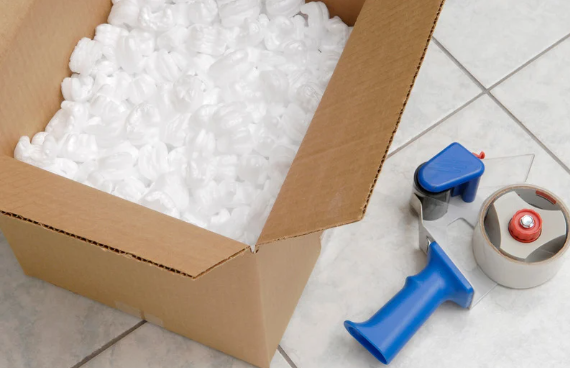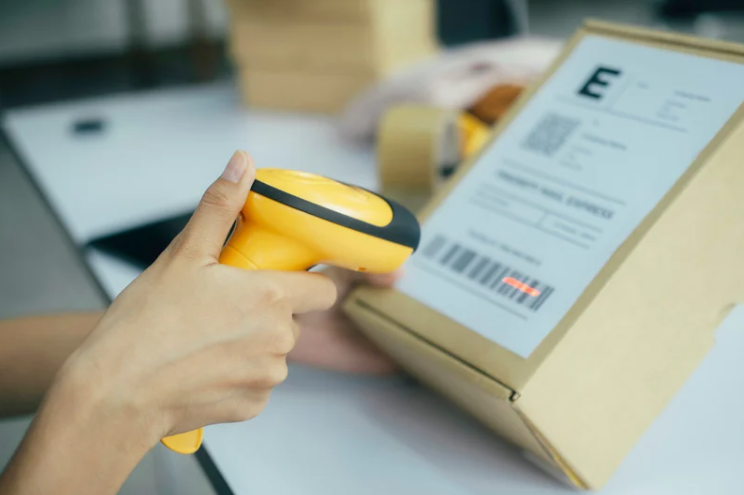Domestic Shipping Made Simple: A No-Stress Guide for Your Next Package
Shipping a package in the U.S. doesn’t have to be complicated.
Once you know a few basics, it’s easy to get your item from point A to point B without damage, delays, or surprise costs. Whether you’re sending a birthday gift, shipping items for a move, or sending something you sold online, a little preparation can make all the difference.
At Blue BirdPack & Ship here in Denver, we see a lot of packages that aren’t packed or labeled the right way. A few simple changes can save you time, money, and frustration.
Choose the Right Box or Envelope
The right container is your first step toward a safe delivery.
-
Use sturdy corrugated boxes for most items.
-
Padded envelopes work best for small, non-fragile things like documents or lightweight accessories.
-
Avoid reusing damaged boxes. If you reuse a good one, remove all old labels and barcodes.
-
USPS, UPS, and FedEx all offer free branded boxes when you use their service.
Blue Bird Pack & Ship can help you find the right size and strength so you don’t pay for more packaging than you need.
A note to make sure that you read it, if you resume a box remove all of the labels. If a label is left on a box, it can send the package someplace completely different or even have it delivered right back to your house.

Pack It the Right Way
Poor packing is one of the most common reasons shipments arrive damaged.
-
Fill empty space so items can’t shift.
-
Bubble wrap, air pillows, or packing peanuts work better than crumpled newspaper.
-
Heavy items should be on the bottom with lighter items on top.
-
Use strong packing tape on all seams.
According to the Packaging Machinery Manufacturers Institute, proper packing can cut damage claims by up to 70 percent. That’s worth a few extra minutes of prep.
Every holiday season, we are handed boxes that the person says are ready to go. All we have to do is give it a little shake, and we can feel the item rolling around. Even in bubble wrap, items can be broken just by the sheer force of being knocked around in a box. Fill the box with packing peanuts or bring it to us; we can fill it right up for you.
Pick the Best Carrier for Your Shipment
Each carrier has its strengths. Knowing the differences can save you money and time.
-
USPS is often the most affordable for small and light packages. It’s also the only option for P.O. Boxes.
-
UPS is a good choice for heavier packages and guaranteed delivery times.
-
FedEx is strong on time-sensitive shipments, including overnight and two-day delivery.
At Blue Bird Pack And Ship, we compare USPS, UPS, and FedEx rates side by side so you can choose what works best for your budget and schedule.

Don’t Skip Tracking and Insurance
Most services include tracking automatically, but insurance is where you can protect yourself from loss or damage.
-
USPS Priority Mail includes $100 of insurance.
-
UPS and FedEx also include $100 of coverage.
-
Extra coverage is available for a small fee.
Keep your tracking number until the package is delivered. It’s your proof if something goes wrong.
While it might seem like additional insurance is an unnecessary expense, when something is broken or lost, that insurance will reimburse the cost and make the loss less painful and annoying.
Shipping from Denver Has Advantages
Denver’s location makes it easier to reach both coasts quickly. Many shipments from here arrive faster than expected.
Local pack-and-ship centers like Blue Bird Pack and Ship can also prepare everything for you, from choosing the right carrier to securing your items for travel.
Denver’s airport is a major international hub for shipping, making it ideal as a center for shipping and logistics.
Many of our customers operate small businesses that ship all over the world. The Denver area is ideal for sending shipments and making delivery easier.
Know the Size and Weight Limits
If your package is too big or heavy, you could end up paying extra fees.
-
USPS: Maximum weight is 70 pounds. Length plus girth can’t be more than 108 inches for most services.
-
UPS and FedEx: Maximum weight is 150 pounds. Length can be up to 108 inches, and length plus girth up to 165 inches.
Checking your size and weight before you go can keep your costs down.

Understand What You Can’t Ship
Some items are restricted or banned from shipping entirely.
-
Firearms, ammunition, and alcohol are restricted or prohibited by federal law.
-
Lithium batteries, perishable goods, and live animals have special handling rules.
-
Prescription medications require licensing and approved carriers.
The USPS has a full list of prohibited items, and each carrier adds its own restrictions. It’s worth checking before you pack.
Sometimes, restrictions will prevent you from using one carrier or another. For example, heavier packages generally need to go UPS versus the Postal Service. We’ve detailed these in another blog: [link] or you can call us for more information on carrier restrictions.
Quick Facts About Domestic Shipping
-
According to a 2024 USPS report, the postal service delivers about 225 million pieces of mail each day.
-
The average package travels more than 1,000 miles in the U.S. before delivery, according to the U.S. Department of Transportation.
-
USPS Priority Mail flat-rate boxes can ship up to 70 pounds for one price.

Final Tips
Domestic shipping gets a lot easier when you:
-
Pick the right container.
-
Pack carefully.
-
Choose the best carrier for your needs.
-
Add insurance for valuable items.
-
Check size, weight, and restrictions.
If you’re shipping from Denver, Blue Bird Pack & Ship can handle the details for you. We help you choose the right materials, compare rates, and make sure your package arrives on time. Stop in, and we’ll make domestic shipping simple.